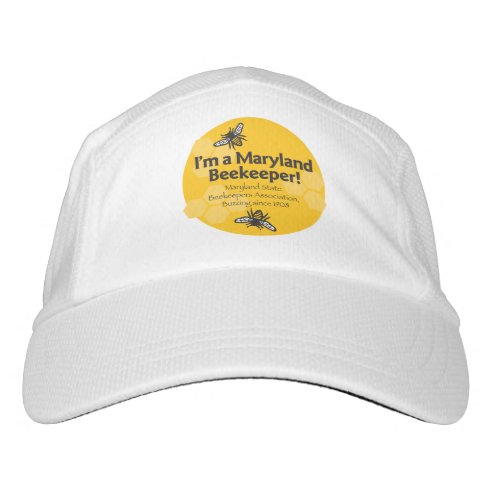
Printable edition
- President’s Message, February 2023
 Hello fellow beekeepers,
I recently had a great trip to Sevierville, Tennessee to attend the Hive Life conference. I’m not sure of the official count, but I heard that there are more than 1700 people in attendance. I really can’t say enough good things about it. The presentations were wonderful, and I thoroughly enjoyed having lunch with beekeepers from all over the United States. I even lunched with a beekeeper who drove from Montréal Canada!
Believe me when I tell you, with that many people attending a conference there were vendors far and wide. It was absolutely the biggest vendor area for beekeeping that I’ve ever seen. I didn’t get to check them all out, kept getting side tracked.
Aside from the presentations, and vendors, there was an amazing honey show with more than 500 entries. One of the honey show judges commented that this honey show is the largest one in North America. With that, A BIG, BIG congratulations go out for a few of our very own Maryland beekeepers who took home ribbons, including Monica Schmitt-Rutledge, Elaine Storm, and Kim Mehalick As I turn to the calendar, I’m very excited for two upcoming events. One being our February 11 meeting where we will welcome Mike Palmer and Stephen Repasky. Mike is planning to share his secrets for creating brood factories, while Stephen plans to offer timely advice about swarm behavior and strategies as well as single chamber brood management. Trust me, you don’t want to miss this meeting so I’m looking forward to seeing everyone at the Harford Community College. A big thanks to Mary Laura for getting the speakers and everyone who works to put a meeting like this together.
Hello fellow beekeepers,
I recently had a great trip to Sevierville, Tennessee to attend the Hive Life conference. I’m not sure of the official count, but I heard that there are more than 1700 people in attendance. I really can’t say enough good things about it. The presentations were wonderful, and I thoroughly enjoyed having lunch with beekeepers from all over the United States. I even lunched with a beekeeper who drove from Montréal Canada!
Believe me when I tell you, with that many people attending a conference there were vendors far and wide. It was absolutely the biggest vendor area for beekeeping that I’ve ever seen. I didn’t get to check them all out, kept getting side tracked.
Aside from the presentations, and vendors, there was an amazing honey show with more than 500 entries. One of the honey show judges commented that this honey show is the largest one in North America. With that, A BIG, BIG congratulations go out for a few of our very own Maryland beekeepers who took home ribbons, including Monica Schmitt-Rutledge, Elaine Storm, and Kim Mehalick As I turn to the calendar, I’m very excited for two upcoming events. One being our February 11 meeting where we will welcome Mike Palmer and Stephen Repasky. Mike is planning to share his secrets for creating brood factories, while Stephen plans to offer timely advice about swarm behavior and strategies as well as single chamber brood management. Trust me, you don’t want to miss this meeting so I’m looking forward to seeing everyone at the Harford Community College. A big thanks to Mary Laura for getting the speakers and everyone who works to put a meeting like this together.
Monica Schmitt's first prize basket!
The second event I’m anxiously awaiting is the blooming of the red maple trees. Red maples (Acer rubrum) are a very early blooming tree & an integral source of early pollen for many pollinators. When folks ask me what they can do to help the bees, an easy answer is plant a Red Maple tree. I know our Eastern Apiculture Society (EAS) team has been hard at work establishing committees & laying the groundwork for a successful EAS conference in Maryland in 2024. The EAS chairperson and co-chairperson recently toured two facilities in Maryland to determine a conference venue. An official venue selection announcement will be made at our February meeting. Please also put the 2023 EAS Conference in Amherst, Massachusetts on your calendar: maybe I’ll see you there. Finally, keep an eye on your hives. If we have a pretty day, maybe consider a quick peak to make sure nobody needs any emergency feeding. We’ve come this far through winter; you don’t want to lose a hive now. Hopefully, spring will be here tomorrow. See you all soon, Fred Smith [Return to February 2023 BeeLine newsletter]
Photo: By Famartin - Own work, CC BY-SA 4.0, https://commons.wikimedia.org/w/index.php?curid=39680756
Notes from the Apiary Inspector
- Notes from the Apiary Inspector
Cybil Preston, State Apiary Inspector, MDA
Maryland Apiary Statistics, 2022 versus 2021!
2021 2022 Beekeepers 2,335 2,353 Apiaries 2,932 3,036 Colonies 18,592 19,575 Inspections 241 244 MDA mailed out the first round of apiary registration letters in December (a total of 4,000!), sending them to all beekeepers who have been active in the past five years. Please send in or email your signed registration if you have not already done so. The option of scanning or electronic return seems very popular and convenient for many, and I have personally processed a bit more than 750 electronic returns!
We are planning a second mailing for February 16, 2023. This one will be sent to those who did not return the first registration. Remember: we make up our Inspectors Lists by the middle of March, and we need your registrations forms ASAP in order to complete these plans. Please send in your electronic form to cybil.preston@maryland.gov!

You also need to be registered in order to participate in the Bee Check voluntary mapping site. We must have a current registration form on file for you to utilize the free site.
With the milder weather we have been having I am inspecting fewer dead outs than last year. The dead outs that I am seeing are dead clusters with dead mites, varroa frass in the cells, clusters on brood with pierced cappings, dead pupae: all evidence of high varroa and virus pressure. Smallish clusters were left behind, leading me to think heavy die off took place during cleansing flights.
Please remember that if you are purchasing nucleus colonies from out of state you will need to have them inspected prior to bringing them into the State of Maryland. Also, for nuc suppliers: please contact me to get on the inspection request list. If nucs are made in Maryland and sold to an out of state beekeeper, they must be inspected before movement across state lines. The beekeeper selling nucleus colonies is responsible for finding out from the buyer where it is going. Every state has the same laws for movement of bees into the state. Please contact me if you need to schedule a spring inspection.
I am also asking bee clubs to vet their suppliers lists. If you are publishing a list of local beekeepers selling nucs or packages, please be sure the supplier is currently registered with the MDA. You can ask them for a copy of their certificate, or you can send me your list and I can cross reference it with the database.
We will be participating in the National Honeybee Survey again this year. I am looking for volunteers who would like to participate. To qualify you must have 8 colonies in your apiary.
This cold weather in late fall was great for K-9 inspections. Mack was able to inspect the hives leaving for California. 2,000 were inspected in November.
Tukka is officially back to work. YIPPEEEE! He started back mid-January. He is still doing bi-weekly physical therapy but has been cleared for normal duty. Thank you for all the support we have received to get him to this point. We humbly appreciate the outpouring of love and concern.
Extended Release Oxalic Acid exception not permitted. Maryland's State Chemist, Tom Phillips, received a request for a Section 2(ee) exception permitting the use of extended release oxalic acid for varroa control. This section of FIFRA (the regulations governing use of pesticides) covers “using a pesticide inconsistent with its labeling.” In other words, this provision presents special circumstances where it is permissible to use a pesticide in a manner for which it is not specifically labeled. If an exception is granted, another use that conforms to the state's written recommendations is permitted. This request has been denied in Maryland.
In Maryland, the only approved oxalic acid product for use in beehives is Api-Bioxal, and the approved methods of application are in solution for use as an in-hive dribble or package spray, or as vaporized or sublimated. Oxalic-acid soaked shop towels or sponges are not legal in Maryland.

Cybil Preston
Chief Apiary Inspector
State Apiarist
EAS Certified Master Beekeeper
Maryland Department of Agriculture
50 Harry S. Truman Parkway
Annapolis, Maryland 21401
cybil.preston@maryland.gov
(410) 841-5920(O)
(410) 562-3464 (M)[Return to February 2023 BeeLine newsletter]
Hive Life Conference 2023
- Maryland Beekeepers Join the Colony at Hive Life 2023

Two dozen beekeepers from Maryland and DC made their way to Sevierville, Tennessee from January 4-6, 2023 to participate in the third annual Hive Life Conference, organized by June 2022 MSBA keynote Kamon Reynolds of Tennessee's Bees!
The conference is extraordinary and original to our community in an amazing number of ways. First, it has grown from 300 participants its first year to 600 in its second to an estimated 2,000 last month. This made it the largest North American beekeeping conference, even though it was scheduled at exactly the same time as the American Beekeeping Federation 2023 meeting.
Second, the conference is an outgrowth of the explosion of podcast/Youtube/online media information and community building among beekeepers. This brings a very different feel to the who, how, and why of the presenters. The organizer, Kamon, invests considerable time in connecting with and presenting speakers who have trustworthy, helpful and useful voices that they wish to share freely with others. For example, Etienne Tardif of Alaska is an HVAC specialist who applies his educational training and professional experience to the thermodynamics of the winter cluster: an interesting and astoundingly helpful lens on this phenomenon. Frankly, my favorite Hive Life presentation and the reason I will buy the presentation recordings when they come out. But it reminded me of a scientific presentation at EAS Ithaca by Dr. Tom Seeley of the role played by carbon dioxide management in the colony. The two come together to give a fuller picture of what our bees are up too, and what impact our actions and management decisions might have.
Third (and most people found this to be the most welcome), the friendly bee-centered enthusiasm and energy share universally among participants was simply joyful and astounding. We are in stressful times, and people were explicitly in a place where they said, "Let's work together" and "a friend of bees is a friend of mine." During his closing remarks, Kamon explicitly touched on this, "let's not get divided by the little things when we are here for the big ones." One grass-roots organized activity was a honey swap: if you brought some of yours, you could trade for honey from just about anywhere in the country.

Fourth (and some of our at-home family members may grimace at this), ALL THE VENDORS were there, about 100 of them, filling about a third of the whole convention center. Deals were to be had, pickup trucks beds were to be filled, entire booths were to be emptied. Vendors were another source of beekeeper education, as numerous hive types, tools, components, and parallel gear were available for inspection and explanation. I came home with a bee lining box, my first comb honey super, and 20 minutes of training in how not to break it. And that's just the stuff I confessed to my husband. Vendors made lots of special advance deals for pre-orders to be picked up onsite. These alone might help defray the cost of future conference attendance!

Fifth, the most amazing honey show I have ever seen: over 900 entries from approximately 500 participants! The judges achieved an incredible feat in processing these entries overnight! Maryland attendees brought back a number of prizes, including Monica Schmitt with a first for her gift basket! Elaine Storm and Kim Mehalick also brought home ribbons and recognition.
With 2,000 beekeepers in the place and so many organizations on site, there was more, so much more. Bluegrass music, mead tastings, silent auctions, side sessions.
Hive Life 2024 will take place from January 4-6, 2024, also at the Sevierville Convention Center. This year sold out more than a month in advance, and based on both popularity and the size of the site, this is likely to happen much earlier this year.
[Return to February 2023 BeeLine newsletter]
Beekeeping Speakers Database
- Maryland Beekeeping Speakers List in Development

The MSBA Board has asked two members, Russell Sprangel and Toni Burnham, to collect information on presenters and topics that are available to beekeeping organizations and events in Maryland and to develop a way to share it with club leaders who need to program topics for meetings, classes, and other activities. This project is already underway, but we need your input, as well!
Russell collected almost 300 topics and speakers, along with contact information, and we are working to confirm their interest in being on our list, whether the topics we have are still on offer, and how best to put folks in touch. If you are interested in being listed as a speaker, we would love to hear from you (and learn more about your topics) at beeline@mdbeekeepers.org! If your club has information on recent speakers and their topics, we would love you to share that with us for inclusion, as well.
At present, available information is being added to a secure Google spreadsheet that we will share with club leaders by request once we have confirmed all speaker data.
MSBA has included full speaker names, their locations or affiliations, their preferred method of contact (email, phone, other), individual presentation titles, and whether the presentation is intended for a beekeeper meeting, a short course, or a public event. Because every club, season, and event is different, folks using this list will have the opportunity to work out whether to recruit speakers for in person or virtual presentations, and what sort of honorarium or travel arrangements might be needed.
MSBA's Second VPs, who represent each of the counties of Maryland, will receive access information for the list once it is ready to be shared. If you are interested in seeing particular speakers or topics included on the list, please talk to your local Second VP and they will bring this information to us!
[Return to February 2023 BeeLine newsletter]
Fun 2023 Apiary Registration Letter
More MSBA Merch in the Making
- More MSBA Merch in the Making!
MSBA is proud of its undeniably bright goldenrod t-shirts, but your Board of Directors has had requests over the years for many more items. Adding additional options often means spending club money to purchase inventory, finding a volunteer to fill orders, and arguing with the post office over missing deliveries. There had to be a better way!
We plan to try something different to get you the wide variety of MSBA swag you desire, and hope you will email us at merch@mdbeekeepers.org with your impressions and suggestions. Using the "Zazzle" order on demand site, you will be able to order from a range of items with the MSBA logo for direct delivery to you. We hope to have our store open to you by the February 11 meeting! WATCH THIS SPACE!
MSBA plans to price these items to offer a minimal cash return to the club in order to keep costs as reasonable as possible to you.We may have to adjust the products and the pricing based on everyone's lessons learned: let us know!
Please watch your announcement emails over the next few days





Samples (not quite done) of future purchase ideas! [Return to February 2023 BeeLine newsletter]
Beekeeping News and Notes
- Beekeeping Science News and Notes: February 2023
Sunflowers Linked to Reduced Varroa Mite Infestations in Honey Bees

A December article in the Journal of Economic Entomology by a team led by Evan Palmer-Young, Ph.D., a postdoctoral fellow at the U.S. Department of Agriculture’s Bee Research Lab, adds to Dr. Sammy Ramsey's work on varroa biology by describing how nutrition may impact the viability of the mites. Sunflower pollen and nectars are protein poor and not the best nutritional support for bees, located near sunflower cropland had lower mite levels—even when the total land cover by sunflowers was scant. The researchers aren't ready to suggest major changes in land use, but Dr. Palmer-Young hazards, “If sunflowers are as big of a factor in mite infestation as indicated by our landscape-level correlations … having a few more acres of sunflower within a mile or two of apiaries could bring colonies below the infestation levels that require treatment of hives with acaracides.” [More info]
US Government Approves First Vaccine for Honeybees
 The US Department of Agriculture (USDA) has granted a conditional license for a vaccine created by Dalan Animal Health, a US biotech company, to help protect honeybees from American foulbrood disease. The vaccine technology exposes queen bees to inactive (i.e., “dead”) bacteria, which enables the larvae hatched in the hive to resist infection. The vaccine is mixed into queen candy (photo), which the queen ingests. Fundamental to this vaccine is scientific research over recent years that has proved that workers can inherit immune response from their queens. [More info]
The US Department of Agriculture (USDA) has granted a conditional license for a vaccine created by Dalan Animal Health, a US biotech company, to help protect honeybees from American foulbrood disease. The vaccine technology exposes queen bees to inactive (i.e., “dead”) bacteria, which enables the larvae hatched in the hive to resist infection. The vaccine is mixed into queen candy (photo), which the queen ingests. Fundamental to this vaccine is scientific research over recent years that has proved that workers can inherit immune response from their queens. [More info]
Catch Up On Bee Research!
 The Journal of Insect Science (in partnership with the American Association of Professional Apiculturists) has put together a free, one-stop shop for you to look at articles "Investigating Fundamental and Applied Aspects of Honey Bee Biology." Compiled by Hongmei Li-Byarlay, Margarita Lopez-Uribe, and Michael Simone-Finstrom, titles include Jack and Ellis on IPM, Metz and Tarpy on Drone quality, Arathi and Bernklau on pesticide exposure, Shanahan on bees in industrial agriculture, and so much more. The Journal of Insect Science is published by the Entomological Society of America. [More info]
The Journal of Insect Science (in partnership with the American Association of Professional Apiculturists) has put together a free, one-stop shop for you to look at articles "Investigating Fundamental and Applied Aspects of Honey Bee Biology." Compiled by Hongmei Li-Byarlay, Margarita Lopez-Uribe, and Michael Simone-Finstrom, titles include Jack and Ellis on IPM, Metz and Tarpy on Drone quality, Arathi and Bernklau on pesticide exposure, Shanahan on bees in industrial agriculture, and so much more. The Journal of Insect Science is published by the Entomological Society of America. [More info]
Not Exactly News, But More Proof?
 A new study led by Penn State researchers uses enormous nationwide data sets and advanced statistical methods to provide more insight on the potential effects of several variables, including some linked to climate change, on honey bees. Their findings show that colony loss in the U.S. over the last five years is primarily related to the presence of parasitic mites, extreme weather events, nearby pesticides, and challenges with overwintering. The researchers worked with many nationwide databases and used tools that allowed them to look at, among other things, colony losses across space and time. They found patterns in colony losses, varroa levels, and land use (including presence of pesticides) that vary from region to region and could impact beekeeper decisions on where they place colonies and how they care for them. Hopefully, commercial beekeepers who move colonies across regions may be able to dig in for details that may help them preserve their stocks. [More info]
A new study led by Penn State researchers uses enormous nationwide data sets and advanced statistical methods to provide more insight on the potential effects of several variables, including some linked to climate change, on honey bees. Their findings show that colony loss in the U.S. over the last five years is primarily related to the presence of parasitic mites, extreme weather events, nearby pesticides, and challenges with overwintering. The researchers worked with many nationwide databases and used tools that allowed them to look at, among other things, colony losses across space and time. They found patterns in colony losses, varroa levels, and land use (including presence of pesticides) that vary from region to region and could impact beekeeper decisions on where they place colonies and how they care for them. Hopefully, commercial beekeepers who move colonies across regions may be able to dig in for details that may help them preserve their stocks. [More info]
Bumblebee Hyperventilation and Native Pollinator Loss?
 At the January meeting of the Society of Integrative & Comparative Biology, Iowa State researcher Dr. Eric Riddell presented evidence that bumblebees, which face most if not all of the challenges that impact honeybee health, are forced by climate change into hyperventilation behavior which burns more energy and reduces the likelihood of survival. Riddell wanted to understand why climate change has dissimilar affects on different bee species. A global change biologist at Iowa State University, he and his colleagues studied queens belonging to the black and gold bumble bee (Bombus auricomus), a species in decline, and the common eastern bumble bee (B. impatiens), which is strong. The queens were placed in temperature controlled glass tubes and their respiration was tracked. After three days at higher temperatures, the black and gold bumbles (whose respiration increased from once an hour to once a minute) died at twice the rate of Eastern bumblebees (who increased from once an hour to once every ten minutes). Riddell will apply this research to additional species to determine whether this is could be a general pattern within native pollinator loss. [More info]
At the January meeting of the Society of Integrative & Comparative Biology, Iowa State researcher Dr. Eric Riddell presented evidence that bumblebees, which face most if not all of the challenges that impact honeybee health, are forced by climate change into hyperventilation behavior which burns more energy and reduces the likelihood of survival. Riddell wanted to understand why climate change has dissimilar affects on different bee species. A global change biologist at Iowa State University, he and his colleagues studied queens belonging to the black and gold bumble bee (Bombus auricomus), a species in decline, and the common eastern bumble bee (B. impatiens), which is strong. The queens were placed in temperature controlled glass tubes and their respiration was tracked. After three days at higher temperatures, the black and gold bumbles (whose respiration increased from once an hour to once a minute) died at twice the rate of Eastern bumblebees (who increased from once an hour to once every ten minutes). Riddell will apply this research to additional species to determine whether this is could be a general pattern within native pollinator loss. [More info]
Honeybees in Urban Areas May Be A Threat to Wild Species
 A study published February 3rd in PeerJ - Life and Environment finds a decline in the richness of wild bee species after the influx of large quantities of managed bee colonies to the Island of Montreal. "Richness" indicates the number of species present, and does not measure the actual abundance within each species. This study follows similar research in Berlin, Munich, Paris, and elsewhere. The main negative impacts of urban bees include forage competition and pathogen transmission. In Montreal, researchers were able to compare data from 2013, before the large increase in popularity of urban beekeeping, and 2020, after the establishment of almost 3,000 managed colonies in the city. Smaller species appear to fare the worst in competition with honey bees, probably due to their limited foraging range. The researchers recommen that "evidence-based beekeeping regulations [are] essential to ensure cities contain sufficient resources to support wild bee diversity alongside managed honey bees. [More info]
A study published February 3rd in PeerJ - Life and Environment finds a decline in the richness of wild bee species after the influx of large quantities of managed bee colonies to the Island of Montreal. "Richness" indicates the number of species present, and does not measure the actual abundance within each species. This study follows similar research in Berlin, Munich, Paris, and elsewhere. The main negative impacts of urban bees include forage competition and pathogen transmission. In Montreal, researchers were able to compare data from 2013, before the large increase in popularity of urban beekeeping, and 2020, after the establishment of almost 3,000 managed colonies in the city. Smaller species appear to fare the worst in competition with honey bees, probably due to their limited foraging range. The researchers recommen that "evidence-based beekeeping regulations [are] essential to ensure cities contain sufficient resources to support wild bee diversity alongside managed honey bees. [More info]
And BOBs Your Tenant: Honeybee Hives as Osmia Incubators
 Among the many "secrets" that beekeepers often chew on privately is the fact that many other species actually work longer and at lower temperatures than "our girls." The floral fidelity (basically, pollination efficiency) of honeybees makes them critical to agriculture, but they may have an additional collaborative role available!
Among the many "secrets" that beekeepers often chew on privately is the fact that many other species actually work longer and at lower temperatures than "our girls." The floral fidelity (basically, pollination efficiency) of honeybees makes them critical to agriculture, but they may have an additional collaborative role available!A USDA/ARS team led by Lindsie McCabe looked at the use of Osmia lignaria on orchard crops: these bees require artificial warming in order to be available in time for crop blooms, and the process is time consuming and inefficient. Instead, the team created the Hivetop Incubator (HTI): an invention that creates a space on top of a honey bee hive which allows heat to rise through ts mesh bottom to incubate cocooned O. lignaria adults.
The team found no significant differences between the internal temperatures of A. mellifera colonies with and without HTIs and no impact on A. mellifera food storage or brood production. Osmia lignaria in hive-heated HTIs emerged 3× faster than bees in unheated HTIs.

[Return to February 2023 BeeLine newsletter]
Winter Meeting 2022 Information
- 2023 February 11 MEETING
Hear talks by MICHAEL PALMER and STEPHEN REPASKY!
Join in-person or via Zoom
MICHAEL PALMER will tell us his secrets to creating Brood Factories and Queen Rearing in the Sustainable Apiary. Michael harvests 40-TONS of honey a year, so it will be exciting to hear how he does it, along with tips we can use in our own backyards.
STEPHEN REPASKY will speak about Swarm Prevention and Management, and Single Brood Chamber Management.
LOCATION: Harford Community College
ADDRESS: 401 Thomas Run Road, Bel Air, MD 21015, Entrance 2
BUILDING: The Chesapeake Center, first building on the left (CLICK for google map / directions)
ROOM: In the dining hall area just outside the Chesapeake TheaterDAY: February 11, 2023
TIME: 9AM - 4PM (Doors open at 8 :30 AM)2023 February 11 Meeting SCHEDULE
WHEN WHAT WHO 8:30AM Refreshments, Coffee, Donuts, etc. 9:00 AM Opening and Welcome Fred Smith, President 9:15 AM Maryland Apiary Inspector's Report Cybil Preston, MD State Inspector VIA ZOOM 9:30 AM UMD and BeeInformed Partnership Update Mark Dykes, UMD Bee Squad 10:15 AM Single Hive Body Brood Nests Steve Repasky of Meadowsweet Apiaries, EAS Master Beekeeper 11:15AM Brood Factories VIA ZOOM
Mike Palmer of French Hill Apiaries, VT
EAS Master Beekeeper12:15 PM EAS 2024 in Maryland: Site Announcement and Update David Morris, former MSBA President, EAS Master Beekeeper, President EAS 2024 12:30 PM Lunch 1:30PM Swarm Management
Steve Repasky of Meadowsweet Apiaries, EAS Master Beekeeper 2:30 PM Queen Rearing in the Sustainable Apiary VIA ZOOM
Mike Palmer of French Hill Apiaries, VT
EAS Master Beekeeper3:30 PM Panel: Senior Beekeepers Respond to Your QUESTIONS Meeting Keynotes, Fred Smith, Mark Dykes, MaryLaura Fitzgerald 4:00 PM Adjourn Fred Smith, President (Scroll to the bottom for additional zoom options)
MICHAEL PALMER Autobiography

Michael Palmer As a child, Michael Palmer spent most of his spare time outdoors, fascinated by the plants and insects and animals living in his suburban New York City environment. He escaped the city by going off to the University of Vermont, where he fell in love with the countryside, his future wife, and eventually the little bugs that we all hold so dear.
The first colonies of honeybees arrived in 1974 as packaged bees, and over the following twenty odd years, he built French Hill Apiaries into a farm of nearly a thousand colonies. About 1990, Acarine mites and then Varroa mites arrived in his bees. The result was not pretty. Beekeeping became way more difficult, and way more expensive. With ever increasing losses, the wisdom of buying in replacement bees came into question. Splitting strong colonies reduced the honey crop and pollinating the local apple orchards caused the whole operation fall apart with failing colonies, broken equipment, and one thoroughly exhausted and one frustrated beekeeper.
In 1998, Mike tried raising a few queens, wintering them in nucleus colonies. The results changed his beekeeping forever. Not only did the bees winter more successfully and store larger surplus honey crops, the fun level rose to new heights, far above the clouds.
Believing that quality should always trump quantity, a decision was made to cut back on the total number of production colonies in the apiary, and focus on raising the best queens possible. With a thousand nucleus colonies of various configurations to help support the seven hundred honey producing colonies, French Hill Apiaries produces, on average, some twelve hundred queens and thirty to forty tons of honey annually.
Michael lives in St. Albans, Vermont with his wife Lesley, along with Wilson and Gemma, their Maremma Sheepdogs. When not helping his crew manage the honey production colonies, or spending countless hours in the queen rearing apiaries, Mike travels the world teaching sustainable beekeeping to anyone who will listen.
STEPHEN REPASKY Autobiography

Stephen Rapasky, co-author "Swarm Essentials"
Photo (c) Pittsburgh City PaperA second-generation beekeeper, Stephen Repasky is a nationally recognized speaker, author and consultant from Pittsburgh, PA. He is a certified Master Beekeeper through the Eastern Apicultural Society and is the past-President of the Pennsylvania State Beekeepers Association, past president and co-founder of Burgh Bees, and a former member of the Board of Directors for the American Beekeeping Federation. He is also an active member of the PA Queen Bee Improvement Project and is a member of the Penn State Center for Pollinator Research Advisory Board and the Pennsylvania State Apiary Advisory Board. Stephen manages approximately 200 colonies (mostly as single brood chambers) in western Pennsylvania and is involved in honey production, queen rearing and the selling of nucleus hives each spring and summer to those interested in starting or expanding their own beekeeping adventure!
He also manages the apiary program at Pittsburgh International Airport where there are nearly 100 colonies used in honey production, research studies and queen production. Pittsburgh International is home to the largest apiary program in the country located entirely on airport property.
Stephen had his first book published by Wicwas Press in 2014 entitled " Swarm Essentials" and can be found teaching beekeeping classes and workshops in the Pittsburgh area and presenting lectures on a variety of beekeeping topics at local clubs and many regional and national conferences around the United States.
Join Zoom Meeting
https://umd.zoom.us/j/99788966437Meeting ID: 997 8896 6437
One tap mobile
+13017158592,,99788966437# US (Washington DC)
+16469313860,,99788966437# USDial by your location
+1 301 715 8592 US (Washington DC)
+1 646 931 3860 US
+1 929 436 2866 US (New York)
+1 305 224 1968 US
+1 309 205 3325 US
+1 312 626 6799 US (Chicago)
+1 507 473 4847 US
+1 564 217 2000 US
+1 669 444 9171 US
+1 669 900 6833 US (San Jose)
+1 689 278 1000 US
+1 719 359 4580 US
+1 253 205 0468 US
+1 253 215 8782 US (Tacoma)
+1 346 248 7799 US (Houston)
+1 360 209 5623 US
+1 386 347 5053 US
Meeting ID: 997 8896 6437
Find your local number: https://umd.zoom.us/u/adTZFzeFgaJoin by SIP
99788966437@zoomcrc.comJoin by H.323
162.255.37.11 (US West)
162.255.36.11 (US East)
115.114.131.7 (India Mumbai)
115.114.115.7 (India Hyderabad)
213.19.144.110 (Amsterdam Netherlands)
213.244.140.110 (Germany)
103.122.166.55 (Australia Sydney)
103.122.167.55 (Australia Melbourne)
149.137.40.110 (Singapore)
64.211.144.160 (Brazil)
149.137.68.253 (Mexico)
69.174.57.160 (Canada Toronto)
65.39.152.160 (Canada Vancouver)
207.226.132.110 (Japan Tokyo)
149.137.24.110 (Japan Osaka)
Meeting ID: 997 8896 6437


